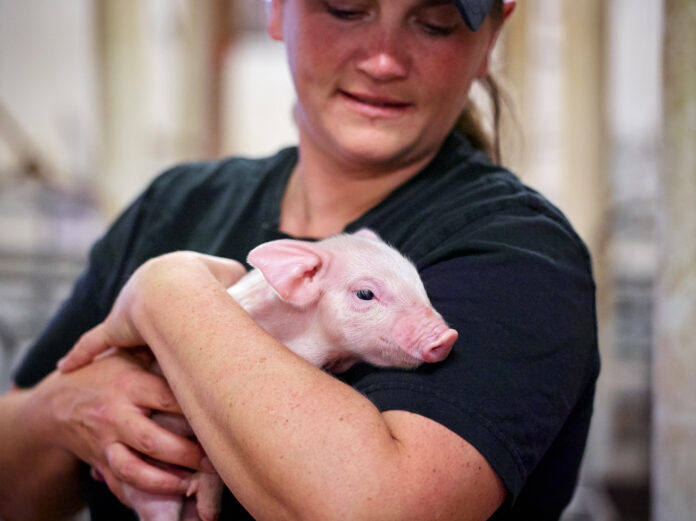By Andrew Heck
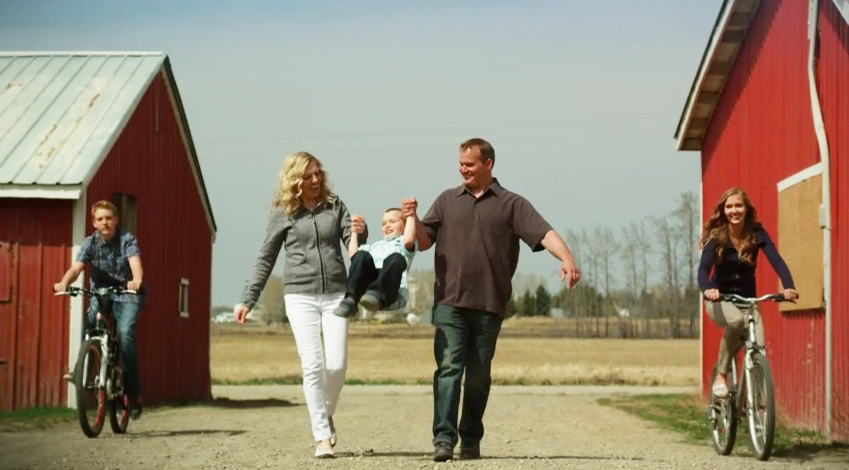
Farming is often a family affair. Across Canada, you can find generational family farms involved in any commodity dating back decades or centuries, depending on the region of the country. For many of these families, their legacies are an integral part of their identity, of which they are extremely proud.
While no-one would doubt the depth of this tradition, for others, agriculture is an industry entered from the periphery. With each passing year and each passing generation, Canada, like many parts of the world, becomes increasingly urbanized. Coming from an urban setting, it can be especially difficult to break into the industry directly, and often, a leg-up is needed on the side of education, as a starting point.
Getting a leg-up can prove challenging, depending on the field of interest, but for undergraduate students attending the University of Alberta, the course ‘AN SC 101 – Principles of Animal Agriculture’ is one unconventional avenue through which the Canadian agriculture sector is supported by individuals who may not seem to be a natural fit but grow an appreciation for the industry just the same.
Ag education helps inspire science students
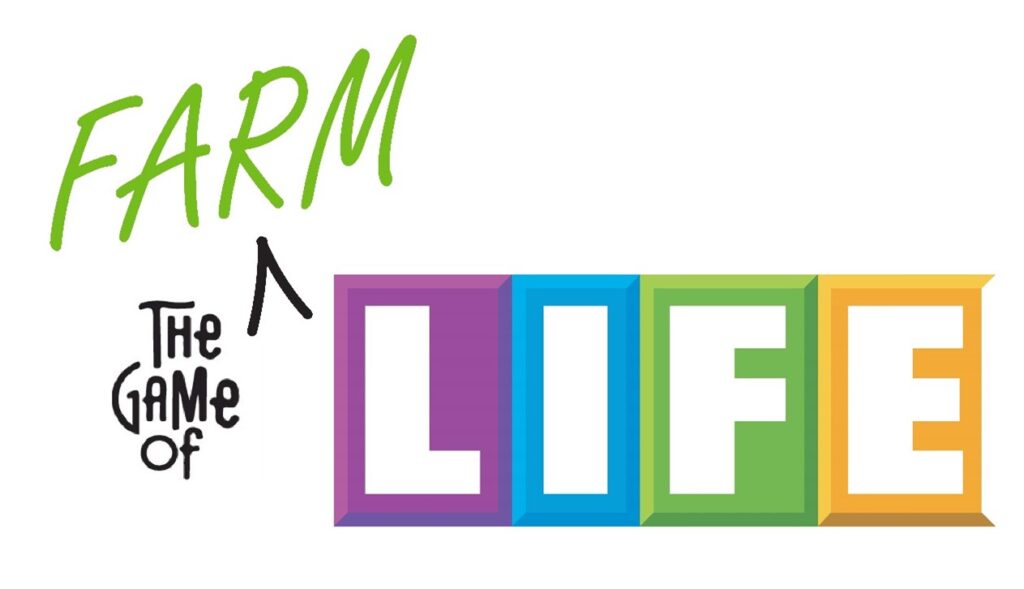
Frank Robinson, Professor, Poultry Production and Physiology, University of Alberta, takes to heart the mission of bringing agriculture to the young, wide-eyed masses. The university’s Winter 2021 semester for Principles of Animal Agriculture is the forty-fifth time Robinson has taught or co-taught the course over three decades, currently alongside Martin Zuidhof and Leanna Grenwich.
This year, the course features a group project component, ‘The Game of Farm Life 2.0,’ during which student cohorts must propose a hypothetical farm design, helping them gain knowledge of farm start-up requirements, practical application of animal husbandry, technologies, breeding, nutrition, housing, health and marketing.
To guide the students’ thinking, the course features a diverse group of producer representatives from pork, beef, dairy, poultry, eggs and other ruminant and farmed game commodities. This year’s roster, among other producers, included Alberta hog farmers Scott Hyshka of Sunterra Farms, near Acme; Laurie Fries of Sunhaven Farms, near Wainwright; Ken Hamoen of Sand Ridge Farm, near Barrhead; Martin Waldner of Hartland Colony, near Bashaw; Alastair Bratton of OlyPork, with farms in central Alberta; and Chris & Jessica Fasoli of The Bear and Flower Farm, near Irricana. Each producer offers a glimpse into different angles of the Canadian pork sector, from independents and integrators to contracted pig production and farmgate sales.
On eight consecutive weeks throughout the semester, each student cohort was assigned at least one producer representative per commodity, with whom the cohort met virtually.
“In the past, I would connect students with two or three producers, and we would bring the entire class to those farms to learn about their operations,” said Robinson. “While COVID-19 has created a lot of challenges in academia, for this course, we have the benefit of now connecting to dozens of producers and individualizing interactions, which is something we weren’t able to do before.”
On-farm visits come with a host of logistical challenges, including travel time and costs, aligning schedules and enforcing biosecurity, but the virtual format has the benefit of negating those considerations, in addition to creating digital copies of presentations and conversations, which are recorded using videoconferencing software.
Today’s students, tomorrow’s leaders
From the outside looking in, many animal science students have hopes of eventually becoming companion animal veterinarians, but Robinson’s course helps expose these students to other potential lines of work in livestock.
“A lot of these students come from the city, and they want to work with dogs and cats,” said Robinson. “Some of them have never even thought about agriculture, but when they experience what’s out there, some of them realize this is a lot more interesting and practical.”
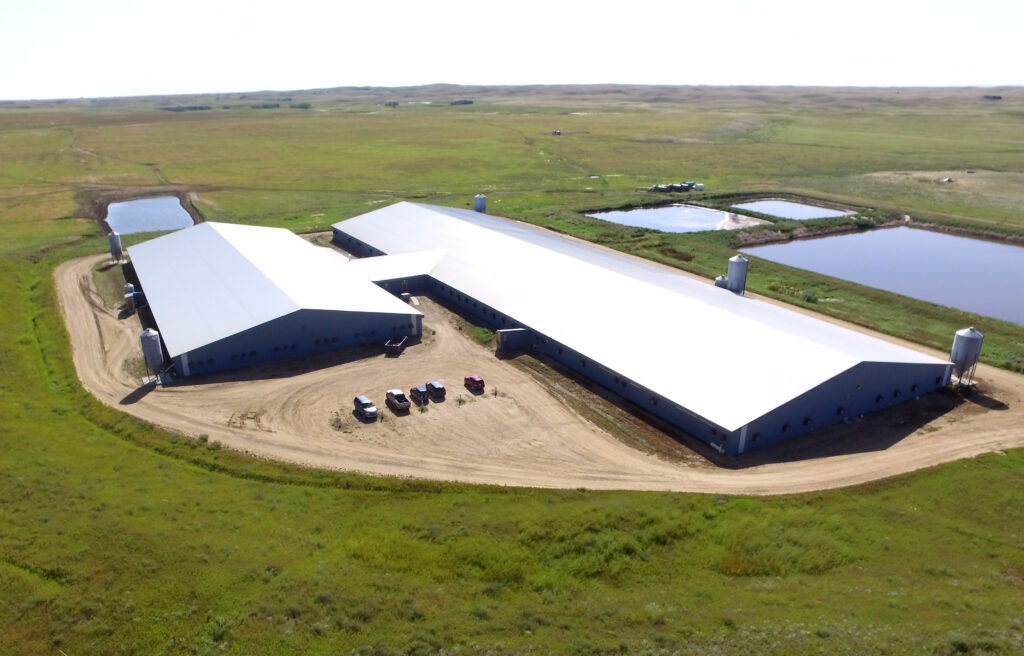
Scott Hyshka is the manager of two Sunterra Farms barns near Acme – 100 kilometres northeast of Calgary. Sunterra’s farrow-to-finish barns supply pigs for Sunterra Meats, a slaughter facility in nearby Trochu that sells much of its products through Sunterra Market locations in Edmonton, Calgary and, most recently, Red Deer. Sunterra’s farrow-to-wean and nursery barns sell live pigs into the U.S., while Sunterra also exports some pork primals and high-end finished products to select Asian markets.
Amanda Hardman is a first-year Bachelor of Science student majoring in Sustainable Agriculture Systems. Her cohort was assigned to work with Hyshka and other producers to help design their fictional farm.
“Scott has been absolutely amazing,” said Hardman. “I’ve been involved with 4-H, so I have some familiarity with livestock, but no-one in my group grew up on a farm, and none of us knew anything about pigs.”
Hardman grew up on an acreage in Parkland County, west of Edmonton. Her mother worked with Alberta’s agriculture ministries for three decades, and some of her father’s family is still involved in beef cattle, but a love for agriculture and desire to pursue a career in the field has driven Hardman despite a lack of much first-hand experience.
“This project has been an absolute blast. It’s the best class I’ve ever taken,” she added. “The instructors still push you academically, but they want you to have a good time. And the producers have all been very helpful and open to all of our questions.”
Some of those questions for Hyshka centred around pig breeds, equipment, nutrition, manure management and other topics necessary to consider for the sake of the project. Hardman’s team is all ears, as Hyshka is more than willing to speak to his expertise.
“Frank did a great job of breaking down these course learnings into modules that the students can work through,” said Hyshka. “Real-life advice can be hard to come by without having the right connections, and I am glad to have been able to assist in the mentoring process.”
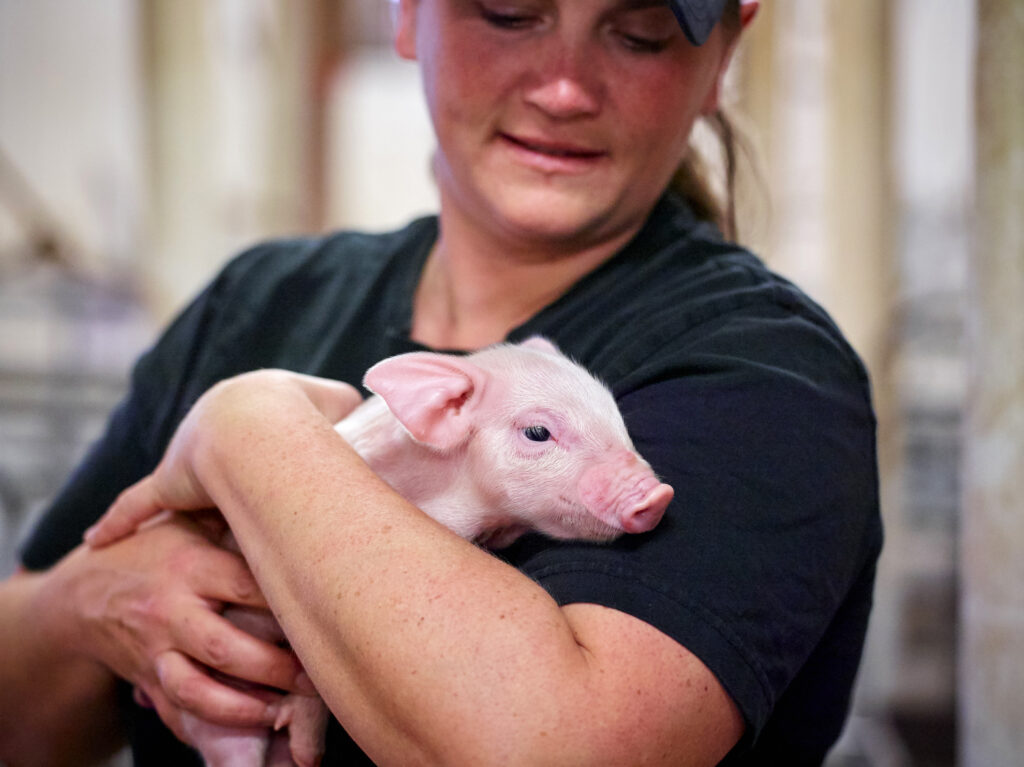
Laurie Fries is a barn manager with Sunhaven Farms, near Wainwright – 200 kilometres southeast of Edmonton. Sunhaven supplies pork for Federated Co-op grocery stores across the prairies and for Thrifty Foods, a B.C.-based subsidiary of Sobeys. The organization belongs to a larger producer group with barns across east-central Alberta.
Fries served as a mentor for Cory Commandeur’s group. Commandeur is a is a first-year Bachelor of Science student majoring in Animal Science. While more than half of his classmates are not from agricultural backgrounds, Commandeur grew up on a third-generation beef farm near Mayerthorpe – 150 kilometres northwest of Edmonton.
“A lot of classes have hundreds of students following virtual lectures, but in this class, having one-on-one time with producers has been very helpful,” said Commandeur. “Our group has done a lot of independent research, and we were able to follow up with Laurie on some specifics related to pig production, to ensure the theoretical aspects of our project were also practical.”
For her part, Fries takes an enthusiastic approach whenever she has the opportunity to become involved with learning.
“I believe these sorts of projects are important for the ag industry as a whole, as it gives the students real-life connections and first-hand information from the farmers and ranchers that do this every day,” Fries said. “As a pork producer, it was a valuable experience, because people don’t often get to see what we do, and it was exciting to give a virtual tour. It also helps these students connect to the farm faces that actually produce the food that they see in the grocery store.”
Industry benefits from sharing knowledge
Aside from the obvious student impact, the Canadian pork sector too benefits from internship arrangements and other educational pursuits. Pork producer organizations across Canada have a mandate not only to serve the financial interests of the producers they represent but also to give back to the institutions that keep the industry fed with talent and support.
“I used to struggle with connecting to pig producers, as I didn’t have very many connections that way,” said Robinson. “Alberta Pork was instrumental in making that part of this program a success. Without their insight, we wouldn’t have had the involvement of such a great group of producers, which speaks to the critical role of producer organizations in this process.”
For years, Alberta Pork has invested itself in outreach programs, most notably through its partnerships with the University of Alberta’s Department of Agricultural, Food and Nutritional Science, but also with the University of Calgary’s Faculty of Veterinary Medicine, in addition to animal husbandry programs at other post-secondary institutions in smaller population centres across the province.
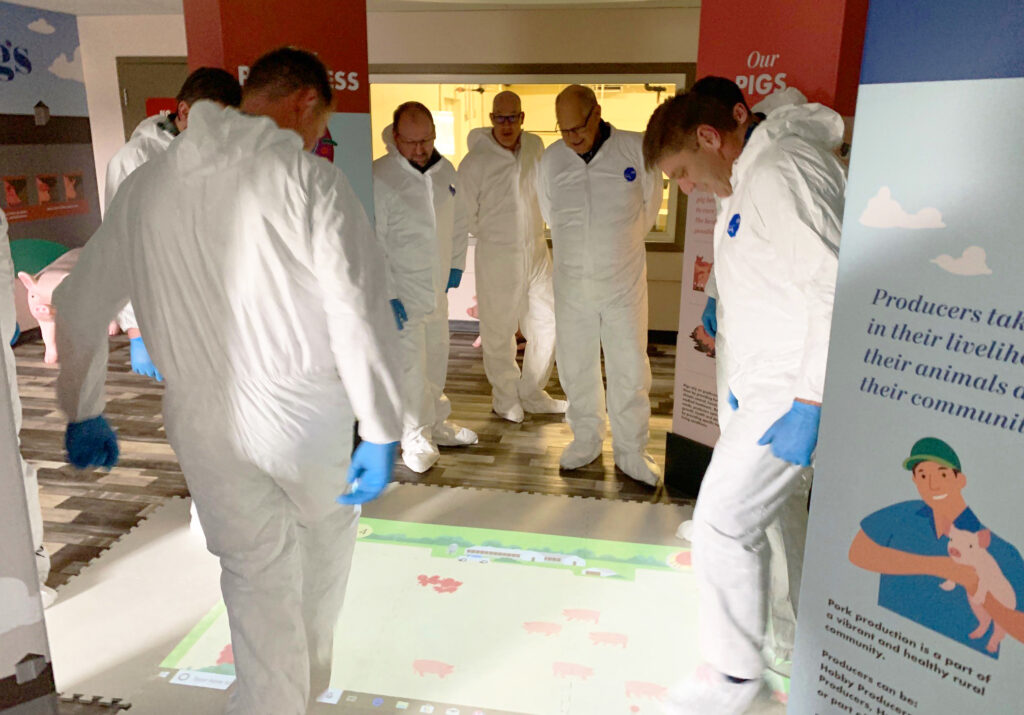
The University of Alberta’s farm campus in south Edmonton features the Swine Research and Technology Centre, attached to the recently renovated Pig Science Centre, which was opened in 2003 and routinely hosts tours for students in Kindergarten through Grade 6, in alignment with the Alberta Education science curriculum.
In addition to the Pig Science Centre, for several years, Alberta Pork has supported University of Alberta students completing their capstone projects – arrangements between the producer organization and university with a focus on experiential learning and skill development for students that is geared toward real-life problem-solving. Students design projects with direction from Alberta Pork, helping the students build their portfolios while also helping Alberta Pork generate information for producers. In at least one case, a capstone student has gone on to work a paid position with the organization.
With visits to locations like the Pig Science Centre, grade-school children grow into young adults ready to study animals in-depth, and with capstone projects helping round out post-secondary learning, there is a very real possibility of translating that learning into long-term career options that make up the broader Canadian agriculture industry. Not only in Alberta, but across the country, the value of such partnerships is being realized.
The future of ag education in Canada
While student-farmer internships have a direct benefit for students exploring the possibility of working on-farm, the agriculture sector reaches far beyond the barn. This matters not only in the conventional value chain capacities of production, processing, transportation and retail, but also in support services such as research, administration, communication and education – all of which are vital components to industry sustainability.
Much is made about sustainability in agriculture. For the Canadian pork sector, that often refers to environmental or economic sustainability. But the human resources angle, perhaps, is even more important to long-term success. For the future, it seems certain the industry must continue making concerted efforts to attract talent from non-traditional backgrounds. Education and outreach will be a crucial part of that recruitment initiative.




